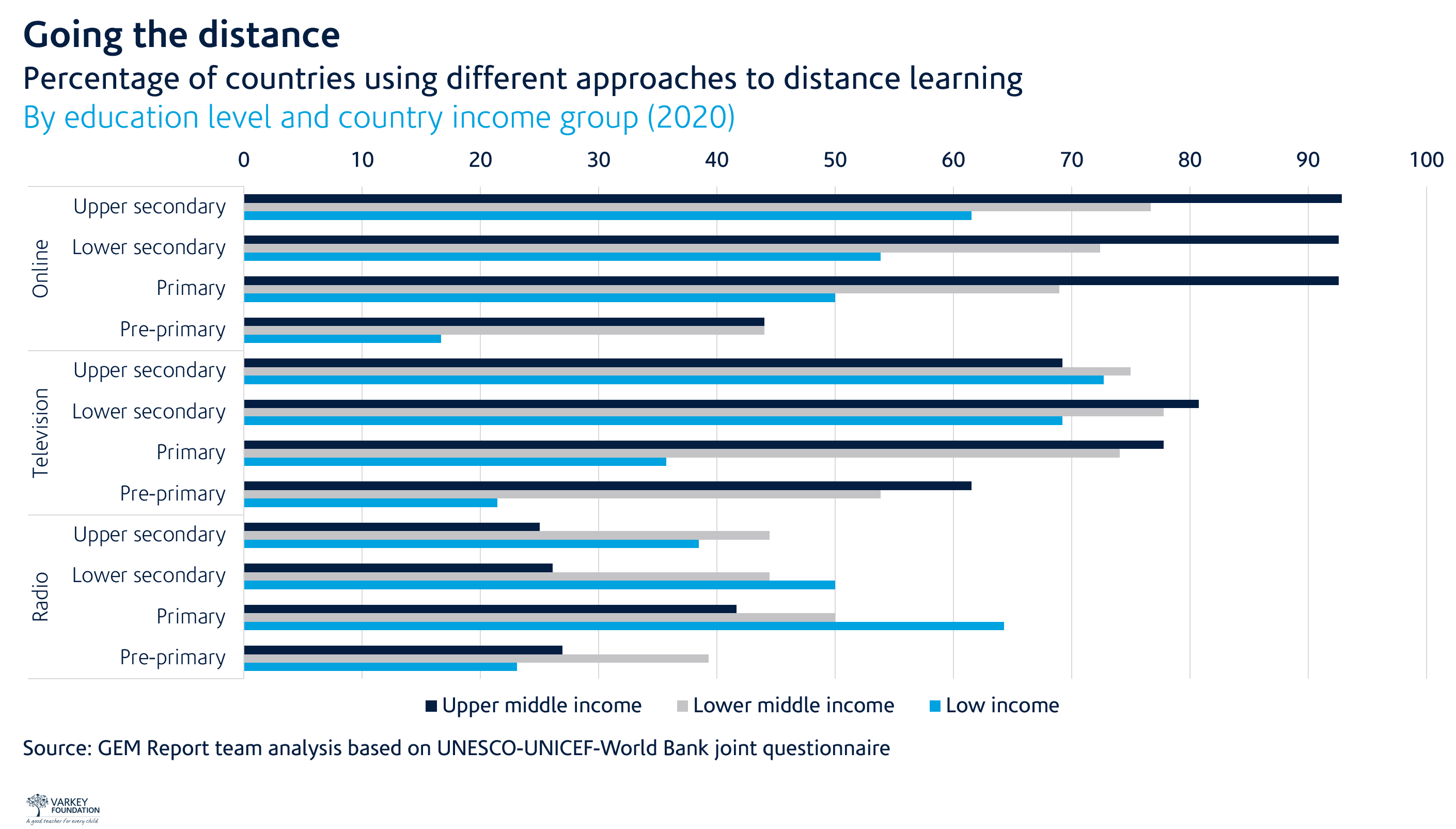PHOTOGRAPH © THE VARKEY FOUNDATION
Amid the COVID-19 crisis poorer countries have generally relied on radio and TV to deliver education, while richer countries have favoured the internet
BY THE VARKEY FOUNDATION

As COVID-19 emptied classrooms around the world, many governments scrambled to move education content online. For policymakers and technologists, the global pandemic will represent an unprecedented test of what online learning platforms can really deliver, on a scale that few could have imagined when the first reports of the disease emerged late last year.
But online learning is far from the only game in town. In fact, it's just one of many ways that governments worldwide have tried to keep students learning. New analysis by the UNESCO GEM Report team has found that poorer countries have relied more on radio and television to deliver education content to students while schools have been closed. The analysis, published in the 2020 GEM Report, has determined that country income is a crucial factor in how different countries have chosen to deliver education content during school closures, with significant differences in the adoption of online learning between the lowest and highest-income countries.
Resource-strapped governments face overwhelming challenges in delivering access to online learning that's both of sufficient quality, and which can span an entire education system. For many of the world's poorest countries, radio and television are far more effective than the internet in getting education content in front of students. And even richer countries can struggle with the significant digital infrastructure demanded by online learning. A quarter of Italian households connected to the internet do not have a fast enough connection to download and stream education content, according to a 2020 estimate by the country's communications industry regulator AGCOM.
Technologists may see COVID-19 as the start of a digital revolution in education. But in many countries around the world, the data suggest that education, at least for now, remains stubbornly analogue.
